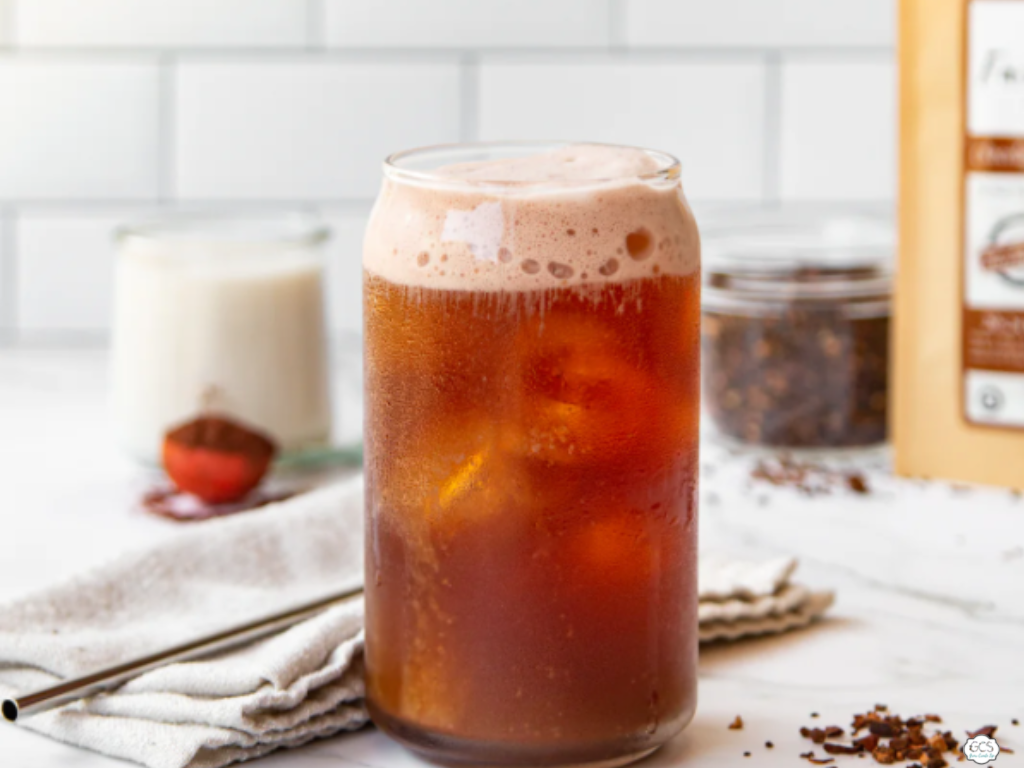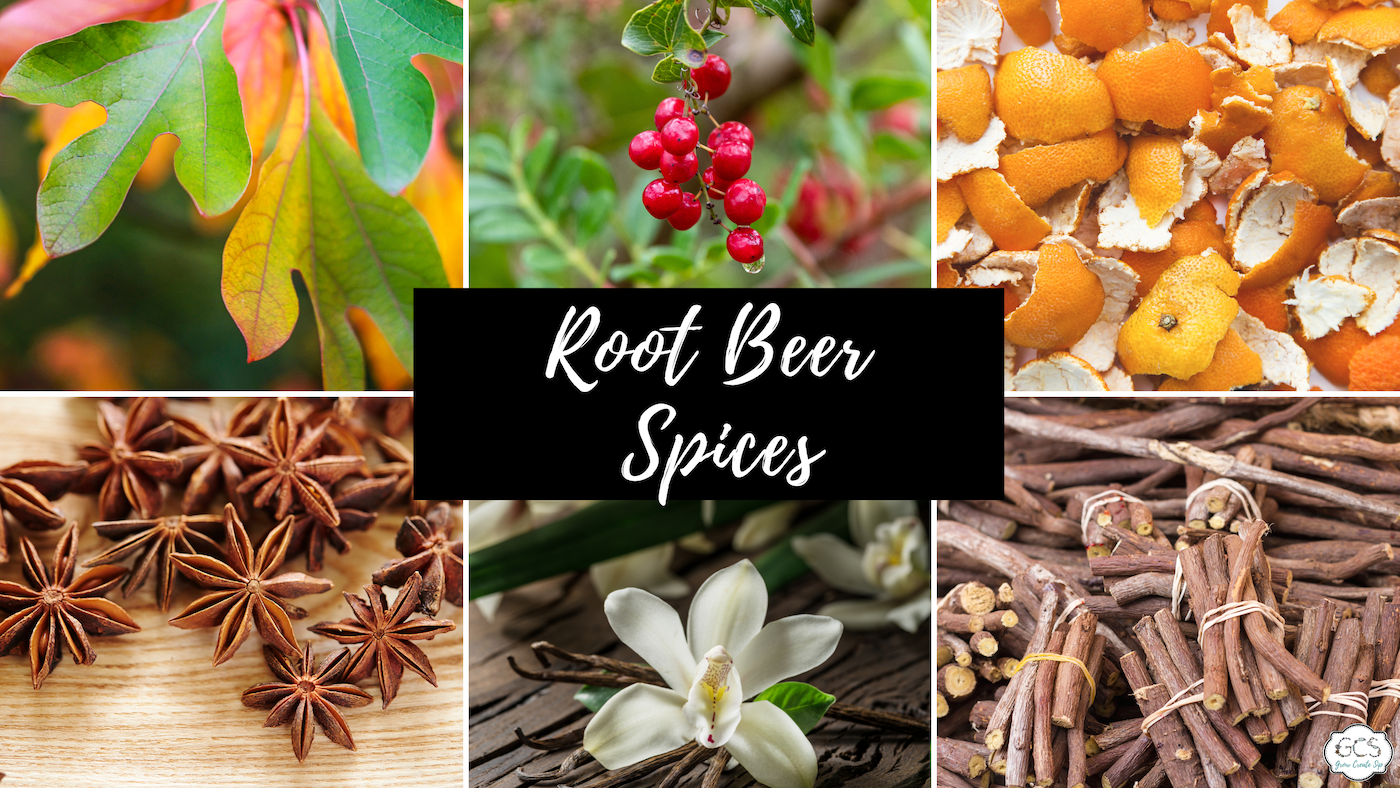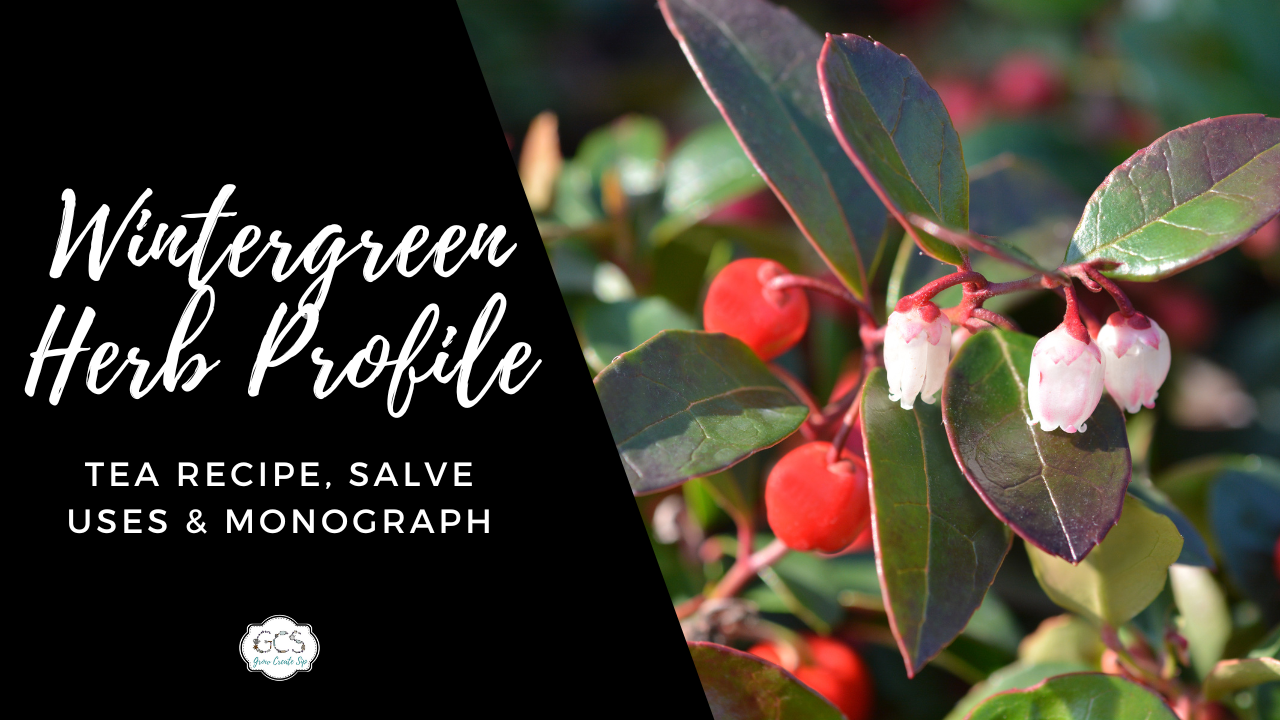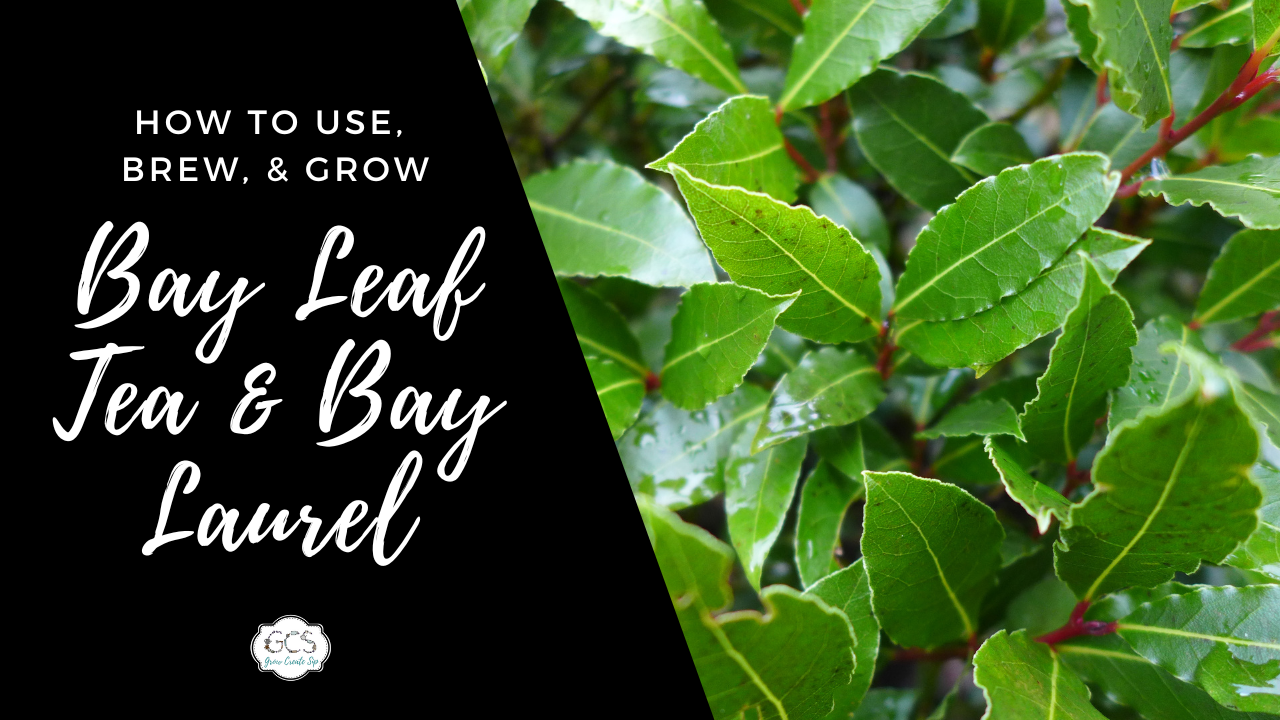Herbal Root Beer Kombucha Recipe
Mar 14, 2023
Did you know that the first root beer float was invented on August 19th, 1893?
130 years later and we are still enjoying the sweet carbonated drink with the foamy topping. The flavor of root beer still tantalizes our taste buds, but people enjoy root beer with added vanilla ice cream even more than by itself.
But what is even better is that you can enjoy the same delicious flavor of root beer as a healthier beverage—by drinking root beer kombucha!
When you make your own kombucha, you control the process, the ingredients, and the flavors. Kombucha and root beer offer an excellent flavor combination paired with all the benefits of both. It's time for you to try root beer kombucha!
The History of Root Beer
Long before the Europeans arrived on the shores of America, the indigenous populations used trees and plants to make herbal teas and remedies. One of the plants they commonly used—the sassafras tree—was what inspired the colonists to make root beer.
The roots of the sassafras tree provided a distinct "root" flavor. When colonists settled in the Americas, they learned about these natural remedies, food, and drinks from Indigenous populations. One that was quick to catch on was the colonists' preference for a root beverage, similar to the root beer we know today.
The oldest root beer recipe in existence dates back to the 1860s! Most root beer today still contains the flavoring of the roots of the sassafras tree.

Photo by Kayla Joy Creative
Root Beer and Kombucha
While root beer has a long history in North America, root beer kombucha is a newer discovery! It combines the love of two beloved beverages, and the result is fantastic.
The sarsaparilla plant and sassafras tree flavorings are added after the first fermentation process. It's in the second fermentation stage when the basic kombucha becomes root beer!
The Legal Stuff
The contents of this blog are made available via St. Fiacre's Farm LLC through Grow Create Sip and Farmhouse Teas and are for informational purposes only. This blog does not constitute medical advice; the content is not intended to be a substitute for professional medical advice, diagnosis, or treatment. Always seek the advice of a qualified healthcare provider with any questions you may have regarding a medical condition. If you think you may be suffering from any medical condition, you should seek immediate medical attention. You should never delay seeking medical advice disregard medical advice or discontinue medical treatment because of information provided by St. Fiacre's Farm, Farmhouse Teas or Grow Create Sip. Reliance on any information provided by this webinar is solely your own risk. St. Fiacre's Farm LLC (along with Farmhouse Teas and Grow Create Sip) is a participant in the Amazon Services LLC Associates Program, an affiliate program designed to provide a means for our team to earn fees for recommending our favorite products! Along with additional affiliate programs not associated with Amazon. We may earn a small commission, at no additional cost to you, should you purchase an item after clicking one of our links. Thanks for supporting us!

Health Benefits of Herbs in Root Beer
There are a variety of herbs that are common kombucha flavorings added to make root beer kombucha. Ideally, all of the following kombucha flavor ideas combined will make the most delicious root beer, but anyone who needs to avoid any particular herb should omit those additions.
Sassafras
The Sassafras is a tree that grows all over the Eastern United States. Root beer is made using the flavoring from the roots of the tree.
There are many benefits to sassafras, including improved urinary tract health, immune health, digestion, and circulation, clearer skin and eyes, and reduced inflammation from bug bites and stings.
Parts of the sassafras tree contain safrole, which is an essential oil that has been studied as a potential carcinogen when consumed in high doses. Since the 1970s, the parts of the sassafras root used in flavoring root beer and other consumed products is safrole-free.
Sarsparilla
The sarsaparilla plant is a member of the ginseng family that was used by North American First Nations people to make a bitter medicinal tea. It was also applied externally to treat and prevent infection.
Sarsaparilla in root beer is common but it also has several health benefits. It encourages sweating and detoxifying and is used in the treatment of stomach aches, cystitis, asthma, and other pulmonary diseases. Poultices are used to treat burns, sores, and itchy skin.
Sarsaparilla is generally considered safe but may interact with certain medications.
Wintergreen
Wintergreen is an evergreen shrub that grows throughout most of the U.S. and Canada that is used as a delicious flavor addition to root beer kombucha.
The leaves of the wintergreen plant contain an aspirin-like chemical called salicylate, shown to help with headaches, fever, urinary ailments, and other inflammatory conditions. It is also used for a store through and as a poultice for skin diseases and inflammation.
Taking too much wintergreen oil can cause nausea, vomiting, and stomach pain.
Vanilla
Vanilla is a plant with a bean (the vanilla bean) used in food and beverage flavoring, including root beer. It also has medicinal value. Some believe that vanilla is good to help with fever, intestinal gas, and tooth decay.
Licorice Root
Some cultures around the world tout licorice for its benefits including calming a sore throat, preventing cavities, and helping with digestion. Certain risks come with consuming licorice root. Licorice root is not for use in pregnancy except under the supervision of a qualified healthcare practitioner. Not for use in persons with hypertension, liver disorders, edema, severe kidney insufficiency, low blood potassium, or heart disease. We recommend that you consult with a qualified healthcare practitioner before consuming licorice root especially in significant quantities.
Orange Peel
Orange peels are flavorful and rich in many nutrients, when not discarded, such as vitamin C, fiber, and polyphenols.
Dandelion Root
The benefits of the dandelion root are many:
- An excellent source of Vitamins A, C, K
- Also contains Vitamin E, folate, and small amounts of B vitamins
- Have a ton of antioxidants (particularly beta-carotene and polyphenols) that can help fight disease
- Chockful of iron, magnesium, calcium, and potassium
- It's a liver tonic protecting the liver from oxidative stress
- Antimicrobial and antiviral properties
- Protects your skin, slowing down aging and damage
Burdock Root
Burdock in root beer is common but it is better known as a treatment in traditional Chinese medicine. Common uses are getting rid of toxins and managing aging skin, joint swelling, and stomach problems. People with blood or bleeding disorders should avoid burdock root.
Cinnamon
Cinnamon is a warm, soothing spice known to have many benefits. It's a strong antioxidant that can help treat viral infections, and fight inflammation, and is also used as a remedy for toothaches and helpful for some people who have ADD.
Star Anise
Star anise is a spice named for the star-shaped pods used for culinary and medicinal purposes. It is strong in bioactive compounds which contribute to a person's good health and has antiviral, antibacterial, and anti-fungal properties.

How to Make Root Beer Kombucha
To make root beer kombucha, you have to start by fermenting a batch of traditional kombucha. If you are not already familiar with making your own kombucha, sign up for our free kombucha workshop!
Move to the Second Fermentation
Once your batch of kombucha ferments for the desired amount of days (7-21 days), you can move on to the second fermentation.
Secondary fermentation involves transferring some (or all) of your fermented kombucha to another vessel. This is the point where you can add any additional kombucha flavorings.
Root Beer, Kombucha Style!
Root beer has a long deep history in the United States and is a favorite flavor among many a soda drinker.
Soda has a lot more sugar than kombucha and kombucha has been shown to help lessen the effect of normal carbohydrate meals helping to level out insulin levels. Many soda drinkers have seen extreme health benefits when switching from soda to kombucha and root beer is the perfect flavor to start with! If root beer isn't your favorite flavor make sure to check out these other kombucha flavors here in their easy dump and go packets!
I'm curious to know, have you made root beer kombucha before? What spices did you use in your mixture? Let us know down in the comments below and see what everyone's favorite spices are!
Other Kombucha Posts You May Enjoy
- Guide to Flavoring & Bottling Your Kombucha
- Step-by-Step Kombucha Brewing Recipe
- Continuous Brew Kombucha
- Herbal Kombucha, can it be done?
- Is there Alcohol in Kombucha?
- How to Brew Jun (Green tea & honey Kombucha)
















